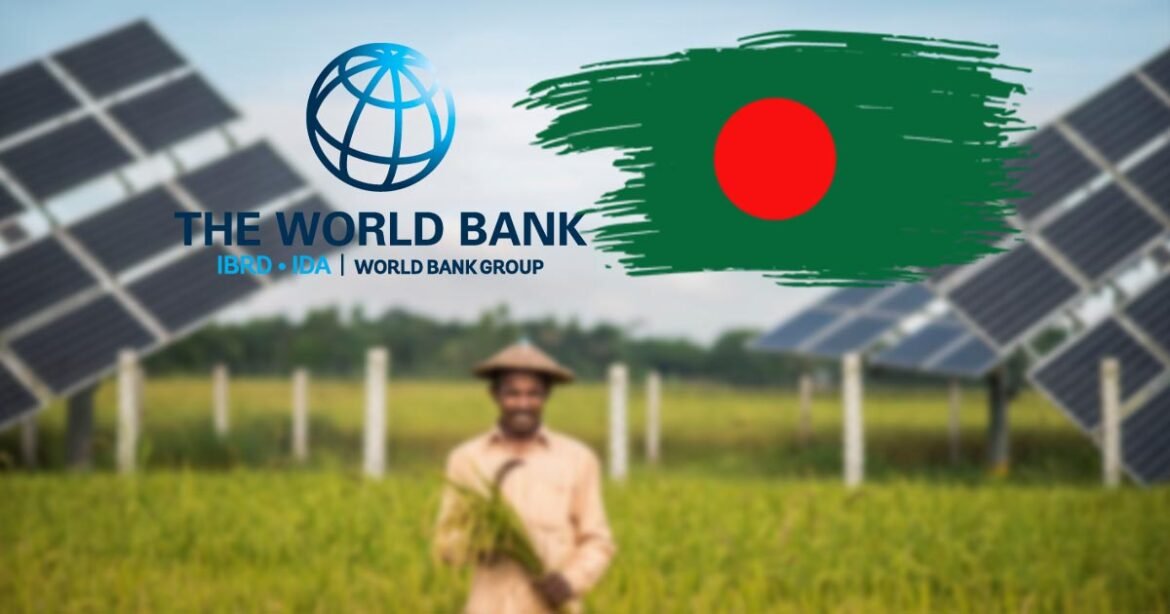With the assistance of World Bank’s $300 million loan, Bangladesh aims to optimize natural gas consumption, manage wastage, and fulfill its commitment to reducing greenhouse gas emissions
The World Bank has approved a $300 million loan to support Bangladesh’s efforts to improve energy efficiency and reduce methane emissions. The Gas Sector Efficiency Improvement and Carbon Abatement Project, which was announced on July 27, 2023, intends to increase the efficiency of gas distribution and end-use by implementing pre-paid metering systems for both residential and industrial consumers.
Speaking about the significance of the project, World Bank Country Director for Bangladesh and Bhutan, Abdoulaye Seck, stated, “Improving energy efficiency will be important for Bangladesh to achieve its 2021 Nationally Determined Contributions (NDCs) commitment of reducing greenhouse gas emissions by 2030. The initiative will aid in reducing natural gas waste in residential and commercial properties and fugitive methane emissions from gas pipelines.
The success of the initiative will not only benefit Bangladesh’s economy and industries, but also contribute to a greener and more sustainable future.
Addressing natural gas leakage and losses
One of the key objectives of the Gas Sector Efficiency Improvement and Carbon Abatement Project is to address natural gas leakage and losses along the gas transmission and distribution network. By installing over 1.2 million prepaid gas meters in Dhaka and Rajshahi Division, the initiative aims to reduce residential and industrial gas usage waste. Notably, approximately 1.1 million prepaid meters will be installed in Greater Dhaka, covering 54 percent of Titas Gas Transmission and Distribution Company Limited’s residential customers. In addition, 128,000 prepaid meters will serve all of Pashchimanchal Gas Company Limited’s residential customers in the Rajshahi division. This comprehensive strategy seeks to maximize natural gas consumption and minimize wasteful losses.
Smart meters for enhanced industrial monitoring
As part of the project’s efforts to improve energy efficiency, approximately 50 smart meters will be piloted for larger industrial users. These smart meters will demonstrate the viability of advanced monitoring systems to better manage gas usage in the industrial sector.
“Prepaid gas metres and advanced monitoring systems will help optimize natural gas end-use, mitigate methane leakages and lead to lower gas bills for the households and industrial users,” said Sameh I Mobarek, World Bank Senior Energy Specialist and Team Leader for the Project.
By providing real-time data and insights, industries can manage to optimize their gas consumption, reduce methane leaks, and consequently reduce their gas expenditures. This move will not only benefit businesses but also contribute to Bangladesh’s commitment to reducing greenhouse gas emissions as per its 2021 Nationally Determined Contributions (NDCs).
Reducing methane emissions and fostering sustainability
As a powerful greenhouse gas, methane emissions from the oil and gas value chain pose a serious threat to global warming. In 2021, natural gas accounted for 68% of Bangladesh’s consumption of primary energy. Nonetheless, methane leaks in the gas value chain, estimated at 257 kilotons, pose environmental challenges equivalent to approximately 7.7 million tons of CO2 emissions. The Gas Sector Efficiency Improvement and Carbon Abatement Project aims to reduce these emissions by enhancing gas network monitoring and promptly locating and fixing methane breaches. By incorporating cutting-edge technologies such as Supervisory Control and Data Acquisition (SCADA) and Geographic Information System, the project seeks to improve gas flow monitoring and further reduce methane leaks, thereby contributing to a greener future.
The World Bank has been at the forefront of supporting Bangladesh’s development journey, and this project marks yet another milestone in their partnership. Over the past 50 years, the World Bank has provided Bangladesh with over $40 billion in grants, interest-free loans, and concessional loans, making it one of the largest IDA programs.
Lastly, with the World Bank’s sanction of the Gas Sector Efficiency Improvement and Carbon Abatement Project, Bangladesh’s pursuit of energy efficiency and sustainability has received a significant boost. As the nation adopts these initiatives, it serves as a model for other nations, heralding in a new era of cleaner and more sustainable energy practices.


